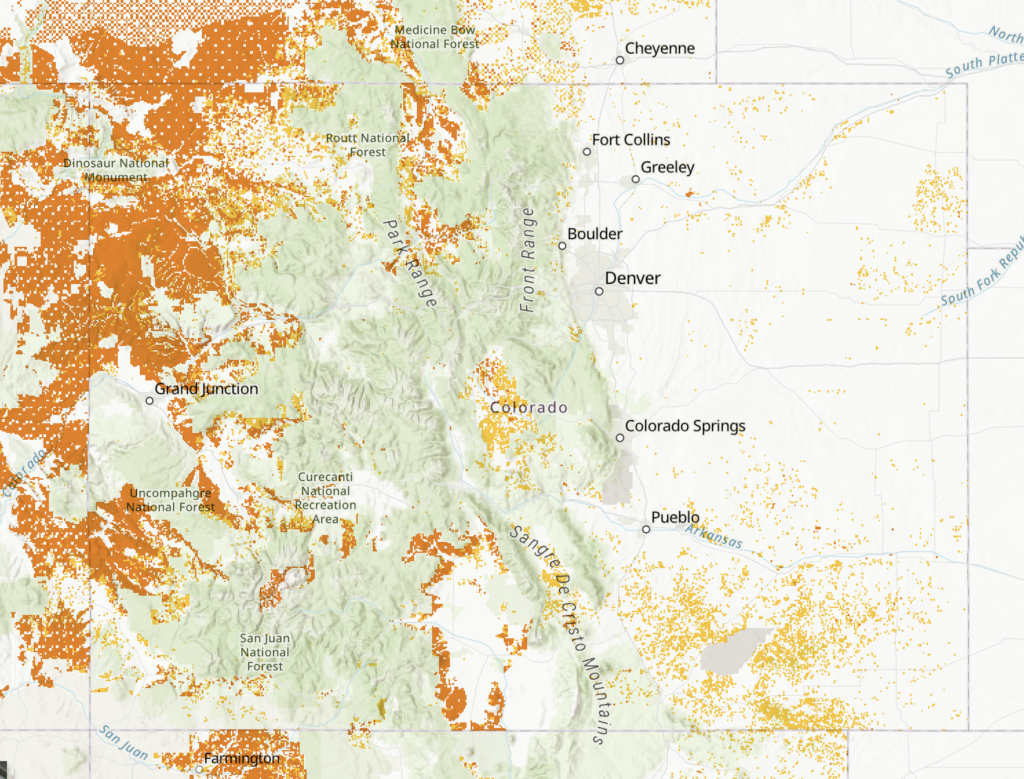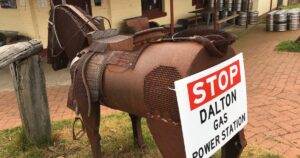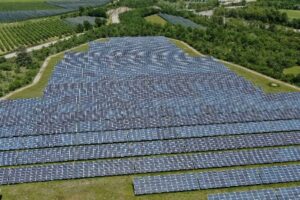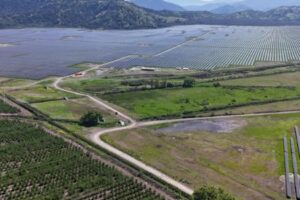The Temperature 08/13/2025


When you’ve been promised that you could be the absolute worst, and then they take even that away from you, it stings.
It’s your periodic Rockies update, of course, and the boys in fightin’ purple seem determined to improve just enough above “historically abysmal” in order to prove doubters wrong and finish merely “unmemorably terrible.” To recap, while they were for a good while on pace to post the worst modern win/loss record ever, they’ve won a few games and now are on course to hit at least 42 and 120. The record is last year’s White Sox at 121 losses.
But wait, “abysmal” remains a distinct hope for those of us wallowing in the not-unpleasant mud of statistical failure. Baseball has always been a game featuring both pastoral charm and a bottomless vault of cold, hard numbers. The Rockies may blow their chances for the worst record with a 3-0 win over the Cardinals as they did Tuesday night, but then they are likely to come back with a 15-1 loss to the Blue Jays. Which wasn’t even close to their worst loss of the season.
And that means we are on pace to set the record for worst run differential. In lay persons’ terms, our opponents have collectively scored 327 more runs than us this season. So far. The modern record for a full season? The 1932 Red Sox at minus-349. For perspective, the next-worst team this year is the Nationals, scoring 149 fewer runs than their opponents.
We believe “on pace” to be one of the most melodic and hilarious phrases in sports writing, so let’s check the math: The Rockies are on pace to lose by a collective 445 runs this year, destroying the previous mark.
And they say we never write any good news.
While we wait for another 20-1 loss (also not their worst loss of the season), we’re still reporting “real world” news. Thanks for hanging with us.
CLEAN ENERGY
New EV chargers coming despite setbacks for industry

Number of new fast-charging hookups $5 million should pay for
Colorado is moving ahead with $5 million in state spending on new EV fast-charging plazas while it waits for the restart of promised federal money.
The state round of funding should help create 56 chargers around Colorado, from Montrose to Limon and in between. The Colorado Energy Office said the grants, the seventh round of such awards to spark public and private sector entities to locate important chargers, will add a not-insignificant amount to the 1,400 charging ports already available across the state.
State officials are emphasizing it is Colorado money being spent because of the divergence in federal and state clean energy policies since Trump took office for his second term. One of the first actions Trump took was to pause $5 billion set aside for a national fast-charging network for the burgeoning EV market.
In addition to the basic debate over subsidizing electric vehicles, the Biden administration was also criticized for not spending the authorized money quickly, and seeing only a couple of the charging stations underway. A reliable, affordable network of fast EV chargers, built at logical intervals, is one key to eliminating the “range anxiety” factor some potential buyers have when considering an EV versus an internal combustion engine.
Nevermind the criticism, most states did not want to lose access to the $5 billion federal pot, and Colorado Attorney General Phil Weiser joined other states in suing the Trump administration to release what the states said was legally authorized spending. They won a federal judge’s injunction in June.
“This grant program is a valuable reminder that, despite the headwinds, we are undaunted and remain clear-eyed and focused on continuing to build enough public electric vehicle charging infrastructure to meet Colorado’s goal of supporting 940,000 light-duty EVs on Colorado roads by 2030,” Energy Office chief Will Toor said, in a release.
The state-funded stations should come online in 2026 and 2027, and will add to 13 already-completed state-subsidized charging sites.
NOT-AS-CLEAN ENERGY
Warning labels for your new gas stove

That sleek new gas stove you were thinking of buying to cook this fall’s batch of green chile was by now supposed to be sporting a warning label about health dangers from fumes and particles. But the intent of a 2025 legislative bill appears to be delayed a bit.
The bill ordered warning labels for natural gas stoves starting Aug. 6, unless a ballot initiative to block the law was filed before then. In that case, the labels would await the outcome of a referendum in November 2026.
A manufacturing and sales trade group filed a lawsuit against the new law and asked for a court injunction blocking the labels, saying that Colorado requiring the language was a violation of the companies’ First Amendment rights and that the science against natural gas is not proven.
“The overwhelming majority of available health research shows there is no association between gas stoves and adverse health outcomes, and — most critically — when evaluated collectively, fails to demonstrate causation,” the Association of Home Appliance Manufacturers said, in filing their suit.
The warning language and links to more information are posted on the Colorado Department of Public Health and Environment landing page for the bill, which we’ve screenshotted above. An American Lung Association representative who supports the warnings was not sure if a ballot protest had been filed, but also had not seen the required labels on his last shopping trip.
Advocates for the bill say the benefits could be twofold, in disclosing health information about burning fossil fuels indoors and encouraging people to consider clean energy alternatives like electric induction cooktops.
“The science has been there for years that these pollutants are closely associated with lung health harms,” said Nick Torres of the lung association. “An important piece of it was providing some education, and shining a light on some of the indoor air quality implications and the health impacts of indoor combustion.”
We wrote about a joint California and Colorado study in 2023 that would seem to support at least some of the labeling claims.
“Stoves and ovens in Colorado running on natural gas produce toxic benzene at levels worse than secondhand tobacco smoke and comparable to notorious oil and gas production leaks, according to a new Stanford University study researchers call the first of its kind,” our story said.
“Benzene produced while gas appliances are in use can linger for hours if not properly vented to the outdoors, and drifts to bedrooms and other parts of the house, the researchers said, after they tested dozens of homes in California and Colorado.”
Supporters of what they call the “first in the nation” labeling bill likened it to “cautionary labels on cigarettes or pesticides.” Consumers are still free to make the purchase, they say, but go into it with more information.
The manufacturers group said it is awaiting word from the U.S. District Court in Colorado about the injunction. In terms of current compliance, they added, “We can’t speak for retailers. However, it makes sense that they would have a hard time complying, given the unrealistic time frame and lack of guidance provided by the state.”
The Colorado AG’s office said the district court judge denied the injunction and the state is now conferring with the manufacturer’s group on next steps.
RESTORE CLEAN ENERGY?
Hickenlooper, Dems seek 2nd chance for clean energy economy

Clean energy jobs that Democrats say will be lost from U.S. budget changes
It may be a futile legislative effort for now, but clean energy advocates hope Democratic senators’ move to restore renewable energy development subsidies will at least rejuvenate some political momentum for green ideas.
National Democrats last week introduced the “Lowering Electric Bills Act,” a short-but-ambitious piece of work that would simply put back in place all the Inflation Reduction Act clean energy credits through 2034. Clean energy advocates say cancellation of the credits in the One Big Beautiful Bill Act has already scrapped billions of dollars in wind and solar projects, and combined with new agency rules could nearly eliminate green energy farm development in coming years.
Colorado’s U.S. Sens. John Hickenlooper and Michael Bennet are signed onto the legislation. The Democrats are aware of their slim chances after slight GOP majorities in the Senate and House just agreed to the clean energy cuts. But they apparently hope to get Republicans on the record again with votes against clean energy development that Democrats believe are popular with a majority of the public.
“Republicans promised to help working Americans, then wiped out the investments that make electricity more affordable and support millions of jobs,” a media release from Hickenlooper’s office said. “Abandoning our booming clean energy economy won’t bring us closer to energy independence, and certainly won’t help working people.”
Hickenlooper is on the Senate’s Energy and Natural Resources committee. He offered an amendment to the big bill to preserve residential solar tax credits from the Biden-era Inflation Reduction Act, but the amendment was rejected.
Democrats say the loss of clean energy development and residential credits will raise the average American energy bill $100 to $400 a year and cost the economy 830,000 jobs by 2030, including from canceled developments and solar installers losing work.
MORE ENVIRONMENT AND HEALTH NEWS

Coloring in the extent of federal land ownership in Colorado is an eye-opener even when the map is politically neutral. When an interest group adds layers of politics and policy to that stark geography, the responses tend to get amped up even further.
Though this particular map above was put out by environmental groups, it can be a Rorschach with many different reactions. It claims to show all the Bureau of Land Management property in Colorado that is now open for potential fossil fuels extraction leasing because of red tape-cutting in the One Big Beautiful Bill Act. (This doesn’t even include newly opened U.S. Forest Service land, which would add a lot more.)
So if you’re in the oil and gas industry, wowza, opportunity knocks. If you’re one of those environmental groups, like Rocky Mountain Wild and the Wilderness Society, it’s a chilling challenge to progressive land-protection values.
Not every piece will get drilled, of course. But the big bill also included mandatory quarterly lease sales, with companies able to pick up unpopular sections at rock-bottom prices. Royalties were also cut. Keep an eye on your local map — change is the only constant.
Cardinals are next up on the Rockies’ schedule, today at 12:15 p.m. By the time you read this, they could be further on their way to the minus-runs record. Stay positive, Colorado!.
— Michael & John
Corrections & Clarifications
Notice something wrong? The Colorado Sun has an ethical responsibility to fix all factual errors. Request a correction by emailing corrections@coloradosun.com.





